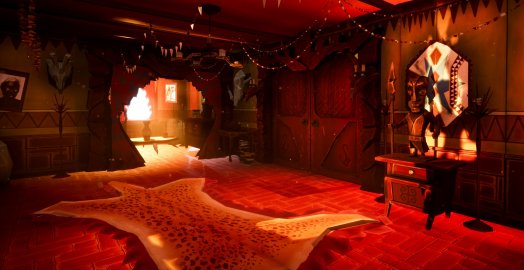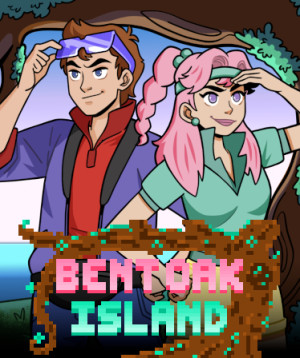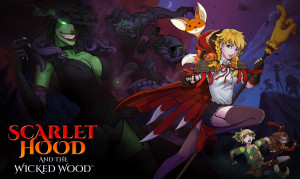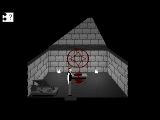Review for Dr Livingstone, I Presume?

There's something I always find inherently funny about escape-the-room games. Whenever I'm doing something like pulling a set of gears from a box to align in a clock so that it spits out the key to the kitchen, I can't help but think, “Does this person have to do this every time they want a snack?” Vulpesoft's Dr Livingstone, I Presume? has these sorts of puzzle contrivances in spades – though, my amusement aside, the game doesn't play any of it for laughs, and here the goal is not to escape but rather to delve deeper and deeper into a peculiar Colonial African home. The game is a melancholy piece of historical fiction based on the meeting between explorers Henry Morton Stanley and Dr. David Livingstone in Tanzania. It's short but chock full of interesting puzzles and emotional dialogue, even if it comes up short of providing any meaningful examination of the lives and actions of these two controversial men.
In 1871, the real Henry Stanley traveled to Africa at the behest of the New York Herald to find David Livingstone years after the latter’s contact with the outside world had ceased. The historical words “Dr. Livingstone, I presume?” that serve as the game's title were allegedly the first uttered when the two met. This game starts a year later, proposing the idea that Henry is on his journey home when he turns around and heads back upon receiving a letter from Livingstone pleading for help. He arrives once again at the doctor’s normally well-kept, fastidious homestead to find that it appears empty and torn asunder. Your goal is to find out what happened to your friend and his house, while overcoming the many puzzles and obstacles placed in your way.
The game combines the ideas of a first-person narrative adventure, with Henry commenting on everything he sees and feels as he looks around at the various curios and journal entries Livingstone has left behind, and a series of escape rooms full of mechanical puzzles and hidden items. You navigate freely with the keyboard and mouse or a controller, poking around at all the different objects in the explorer's African home. Many rooms are locked and the keys are kept in elaborate puzzle boxes or concealed in strange gadgets that reward you only when activated correctly.
While you are usually able to wander back and forth wherever you'd like once an area has been opened, there's never a need to backtrack. The game sets you on a pretty linear path, with each puzzle solved by items and clues in the same room, frequently layered in together. You may have to identify numbers tied to sections of a diagram on the other side of the room that you input into some strange device. Or comb through drawers and shelves and chests to find the pieces to a tangram puzzle, which, once assembled, reveals a crank to wind a device holding a key to the next room. (It must be hell to use the bathroom in this house.)
The house presents a variety of puzzles with a nicely balanced level of difficulty. If you have a pen and paper to record a few key details, you're not likely to become really flummoxed by anything here. I found myself really only stuck once in my entire three hours of play time, for which there was a useful hint mechanic to help out. Henry keeps a journal of everything he's done and learned, where you’re allowed to reveal the next paragraph, which generally contains some observation or conclusion that you haven't reached yet (or haven't proven to the game you've reached yet). This can draw your attention to something you overlooked or haven’t yet discovered in the room, giving you a gentle push without making you feel like you were fed the solution outright.
Much like The Room and other similar puzzlers, Dr Livingstone is very tactile. Keys need to be actually turned; drawers need to be physically pulled open. Rather than simply pointing and clicking, you'll slide switches and yank chains yourself via the mouse. The reticle in the center of the screen will change to let you know you can grab hold of something and drag it in the direction you want it to go. This can be rather tiresome when opening the several dozen drawers and cabinets you find, but in most other instances such tangible interaction with the environment is pretty gratifying. There’s a small inventory bar you can pull up when focusing on an object or mechanism, from which you slide relevant items onto the screen to use them. You can also manipulate objects while they're still in your inventory to reveal secrets they may contain.
Visually the house is decently designed but sort of boring. While the intentionally blocky 3D art is a nicely stylized depiction of an African-themed colonial home, each scene is awash in oranges and reds and browns, making for a bland viewing experience. The palette certainly gives you a sense of being in a hot desert, punctuated by dust motes floating in your field of vision at all times, but it detracts from the overall aesthetic appeal to have everything look so similar. Each area of the house is full of cultural trinkets and paintings and other things that would have been much more fun to examine at if they weren’t all various shades of the same basic hues. Certain rooms are bathed in blue when night falls later in the game, but it's almost too little, too late at that point. Even the slideshow cut-scenes are muted in their sepia-toned digital watercolors.
Coupled with the samey graphics is a soundtrack that is often repetitive and uninspired. Dr Livingstone complements its setting with an African-flavored blend of djembes, marimbas, congas, and hollow woodwinds, while punctuating its more emotional moments with the piano. As a way of setting a tone, the music succeeds admirably in helping you imagine yourself transported to the plains of Tanzania. However, the bold percussive sounds repeat on a loop with very little variety, which becomes grating as you're trying to concentrate and solve a puzzle, or pore over a section of the room for an item you just can't find. Even as you switch rooms and the music changes, I found each song quickly wore out its welcome as it played over and over.
Throughout your exploration of the explorer’s house, Henry reads Livingstone's unsent letters and journal entries, making comments that reveal more about the nature and history of their friendship, along with dropping hints about what might have happened since he left. The letters offer an intimate portrayal of a person looking back on a lifetime of accomplishments, but now suffering profoundly from something we don't yet understand. Henry's concern for his friend evolves into fear that something horrible has occurred in his absence, leading to what’s meant to be a poignant conclusion that didn't really hit as hard as it was intended to for me. The game really wants you to care about the relationship between these two men, but I just couldn't get there, whether due to my own reservations about their real-world counterparts or because the final anticlimactic scene simply fails to deliver enough impact emotionally; most likely a combination of the two.
In a game that comes off like a love letter to Henry Stanley and David Livingstone, it's hard not to dwell on their problematic accomplishments. If you're looking for any sort of modern critical view of colonialism on the African continent, or a nuanced take on nineteenth-century missionary work, you're not going to find it here. As an avid supporter of colonialism in Africa, Livingstone’s hands aren't as clean as we’re led to believe from the reverent way the game goes out of its way to buff out those knots in his legacy. Henry is constantly remarking on how many people Livingstone helped and how great a man he was. At one point he refers to the slave trade and how it angered Livingstone, seemingly ignoring how much time he spent in the company of those who trafficked in human commodities (not to mention Henry's own controversial history on the subject).
To be fair, Dr Livingstone has a warning before you even start not to treat it as a “reliable source of historical knowledge” and encouraging you to do your own research before forming opinions. And in that sense, I suppose it succeeds in its aim. I certainly felt compelled to learn more about the two men after playing. Unfortunately, one only needs a cursory internet search to discover how abusive and racist a figure Henry Morton Stanley was, and it’s disturbing in hindsight to reflect on his role as the protagonist of a game you just finished experiencing through his eyes.
It's hard to fathom why the developers chose to tell their story using these real-life figures and not some fictional stand-ins for whom they could have avoided such dubious or downright horrifically unethical baggage. While a game doesn’t need to justify the politics of its historical setting or characters, of course, Dr Livingstone continually draws your attention to it by having Henry gush over David’s integrity, achievements and reputation many times throughout, always in a purely positive light. Livingstone may indeed have stood head and shoulders above many other European colonialists and missionaries in the 1800s, but focusing so narrowly on glorifying his deeds feels like a disservice to the lasting damage done to the people and cultures of Africa at the time.
For what it lacks in historical accuracy, at least the game's visual storytelling is impressive. Each area of the house teases more about the circumstances of Livingstone's mysterious disappearance. The rooms you enter become increasingly disheveled as you press forward, and Henry becomes more and more concerned about David's whereabouts and mental deterioration. While I may not have been as emotionally invested as the tale being told here wanted me to be, or loved the ideas it seemed to espouse, I was impressed by its ability to draw me into the mystery of what happened to the missing explorer – at least until the underwhelming denouement.
Ultimately, Dr Livingstone, I Presume? is an enjoyable puzzling experience overall but noticeably marred by its weaker and more troubling elements. A lackluster soundtrack and color palette erode some of the excitement of exploring such a culturally intriguing setting, filled with plenty of points of interest. The protagonists are difficult to fully root for if you have even a cursory knowledge of historical context, and the script either addresses this problem in a questionable fashion or simply avoids it at every turn. If you can turn off the critical part of your brain about the men at the center of this adventure, however, you might just find yourself digging the seldom-featured African locale and the clever escape room challenges this modest little puzzler has to offer.
Our Verdict:
While it presents a much rosier version of its central characters than the historical record suggests, Dr Livingstone, I Presume? features a well-structured series of escape room puzzles that’s hindered somewhat by a repetitive soundtrack and use of color.





























